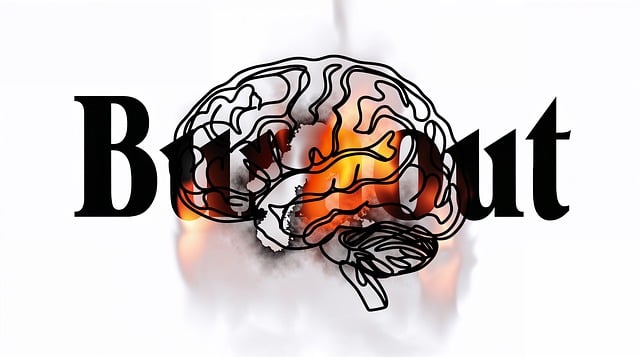Mindfulness meditation is a powerful tool for enhancing overall well-being and managing conditions like Wheat Ridge Functional Neurological Disorder Therapy. Personalized routines, focusing on goals like stress relief or improved focus, combined with consistent practice, offer significant benefits. Techniques such as mindful breathing and body scan exercises cultivate emotional regulation, self-awareness, and calmness. Cultural competency training ensures these practices are tailored to diverse backgrounds, enhancing therapeutic outcomes through safer, more effective patient care.
“Unwind and embrace a sense of calm with mindfulness meditation, a powerful tool for navigating daily life. This practice, rooted in ancient wisdom, offers a modern solution to find inner peace amidst the chaos. In this comprehensive guide, we explore how mindfulness can transform your routine. From understanding its fundamentals to creating a personalized practice, you’ll discover techniques to enhance focus and cultivate a serene mind. Additionally, we delve into its unique role in Wheat Ridge Functional Neurological Disorder Therapy, showcasing its potential to bring about profound changes.”
- Understanding Mindfulness Meditation for Daily Life
- Creating a Personalized Practice Routine
- Techniques and Exercises to Enhance Focus and Calmness
- Integrating Mindfulness into Wheat Ridge Functional Neurological Disorder Therapy
Understanding Mindfulness Meditation for Daily Life

Mindfulness meditation is a practice that has gained immense popularity for its ability to improve overall well-being and mental health. It involves focusing on the present moment, acknowledging and accepting one’s feelings, thoughts, and bodily sensations without judgment. This simple yet powerful technique can be a game-changer for individuals seeking to navigate life’s challenges with greater clarity and calmness.
For those dealing with issues like Wheat Ridge Functional Neurological Disorder Therapy, mindfulness meditation offers a natural and effective approach to managing symptoms. By engaging in this practice regularly, individuals can enhance their ability to cope with stress, anxiety, and depression, ultimately leading to improved mental health and quality of life. Moreover, incorporating mindfulness into daily routines encourages self-awareness, emotional regulation, and enhanced focus, benefiting various aspects of one’s life, from personal relationships to professional endeavors.
Creating a Personalized Practice Routine

Creating a Personalized Practice Routine is an essential step in your mindfulness meditation journey. At Wheat Ridge Functional Neurological Disorder Therapy, we understand that everyone’s path to mental well-being is unique. Your practice should reflect this. Start by identifying your goals; are you seeking stress relief, improved focus, or better emotional regulation? Incorporate these intentions into your daily routine, whether it’s early morning quiet time or a break during a busy day.
Consider factors like your lifestyle, schedule, and preferences when designing your routine. For instance, if you’re someone who thrives in silence, solo meditation might be ideal. Alternatively, if social interaction is beneficial for your mental health, pairing mindfulness exercises with friends could enhance both connection and calmness. Remember, the key is consistency; even short, regular practices have been shown to impact positively on mental health, policy analysis, and conflict resolution techniques by improving emotional regulation skills.
Techniques and Exercises to Enhance Focus and Calmness

Mindfulness meditation involves techniques that cultivate focus and calmness, beneficial for anyone, especially those managing conditions like Wheat Ridge Functional Neurological Disorder Therapy. Simple exercises include mindful breathing where one attentively focuses on each inhalation and exhalation, helping to quiet the mind and reduce stress. Another is body scan meditation, which involves slowly bringing awareness to different parts of the body, fostering emotional regulation and a deeper connection with physical sensations.
Cultural competency training for healthcare providers can enhance these practices by incorporating diverse perspectives and techniques from around the world. For instance, some cultures emphasize mindful movement in addition to sitting meditation. Risk assessment for mental health professionals is also crucial; they should be aware of potential triggers and adapt mindfulness exercises accordingly. This ensures safety and effectiveness during sessions, particularly when working with clients dealing with trauma or anxiety.
Integrating Mindfulness into Wheat Ridge Functional Neurological Disorder Therapy

Integrating mindfulness into Wheat Ridge Functional Neurological Disorder Therapy offers a holistic approach to patient care. By incorporating meditation practices, therapists can help individuals affected by this disorder develop better emotional regulation and stress management skills. Mindfulness allows patients to become more attuned to their thoughts and feelings, fostering improved self-awareness and a sense of calm. This, in turn, enhances their ability to navigate the challenges posed by neurological dysfunction.
Cultural sensitivity in mental healthcare practice plays a crucial role in this integration. Recognizing the diverse backgrounds of patients ensures that mindfulness techniques are adapted to meet individual needs. Effective communication strategies facilitate a safe and supportive environment where patients feel comfortable exploring their experiences. This tailored approach not only improves mood management but also strengthens the therapeutic bond, ultimately contributing to more successful outcomes in Wheat Ridge Functional Neurological Disorder Therapy.
Mindfulness meditation, as explored through this article’s various facets, offers a powerful tool for enhancing daily life. By understanding its core principles and personalizing practice routines, individuals can harness techniques to boost focus and cultivate calmness. Integrating mindfulness into Wheat Ridge Functional Neurological Disorder Therapy further underscores its potential as a transformative, holistic approach to well-being. Embracing this ancient practice in modern times can lead to profound mental and emotional shifts, making it a valuable asset for anyone seeking peace amidst life’s challenges.











